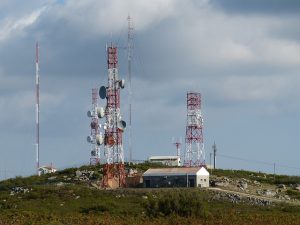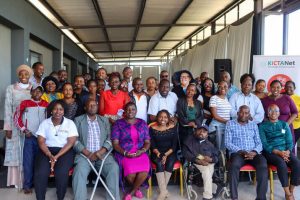Hi Liz
Yes, definitely a massive need for local content, or more accurately, localized content. Some content, such as health and education may be fairly standard (though does require local language versions), but other content such as on agriculture is highly localized based on type of agricultural product, local climate, soil etc.
But I am not sure how a license for providing internet connectivity can help with the local content issue?
In fact, kenya has a fairly good ecosystem of businesses/software developers for providing local content riding on existing connectivity networks (and sometimes in partnership with them). Local content is getting better and better, though awareness of that local content is not there yet amongst users, and needs more collaborative efforts amongst content providers, connectivity providers, local institutions (schools, clinics etc), local community leaders etc to get the word out about useful content.
At the moment one does not need a license to create digital content necessarily, but there is a “content service provider†license at the CA for those who provide content through a telecommunications network (rather than just as a cloud service). The definition for this is:
“provide content related services to end users who are customers of the application service providers. Content service providers use the infrastructure of Network Facilities providers and the Systems of the Application Service Providers to reach their customers. The services offered by content service providers are of information, entertainment, education, health, social etc nature that can either be text, voice, video clips delivered to a customer’s mobile device on request or as subscribed to by the customer.â€
Note, for this license: application fee: 5k, operating license fee: 100k, annual operating fee: 0.4% of turnover or 80k). Are those fees barriers for more content providers registering as CSPs?
From: kictanet [mailto:[email protected]] On Behalf Of Liz Orembo via kictanet
Sent: Friday, May 28, 2021 11:29 AM
To: Adam Lane <[email protected]>
Cc: Liz Orembo <[email protected]>
Subject: Re: [kictanet] Licensing and Shared Spectrum Framework for Community Networks for Kenya online discussion
Thanks Kivuva for pointing out that for profit tier licences are already in place. Can there be special categories under CN that also provide content?
Here are my thoughts Adam.
ISPs and MNOs have done a great job in connectivity. But they still lack in relevant local content. That’s why Internet in the rural is still perceived as a luxury commodity.
So an approach similar to community radios would be good to push this adoption mashinani, and maybe create competition for big players to step up. (Like Royal Media group and its vernacular stations)
On Fri, May 28, 2021 at 9:15 AM Mwendwa Kivuva via kictanet <[email protected]<mailto:[email protected]>> wrote:
On Fri, 28 May 2021 at 10:05, Benson Muite via kictanet <[email protected]<mailto:[email protected]>> wrote:
> *Unserved areas exist within cities. Take an example of Nairobi; we
> have Poa Internet, Tunapanda serving the masses where major telcos
> have failed. The question is not only about coverage but also about
> affordability.*
> *
> *
> *Mombasa has Muoroto, Bangladesh, Kisumu Ndogo… all remain
> unserved. Yet the town is teaming with all ISPs fighting for
> businesses within CBD and industrial areas of Shimanzi.*
Surprisingly, community networks are also used in New York:
www.nycmesh.net
Very interesting that NY has underserved people. “The Internet is central to our lives, but in New York City far too many people don’t have access.”
_______________________________________________
kictanet mailing list
[email protected]<mailto:[email protected]>
lists.kictanet.or.ke/mailman/listinfo/kictanet
Twitter: http://twitter.com/kictanet
Facebook: www.facebook.com/KICTANet/
Unsubscribe or change your options at lists.kictanet.or.ke/mailman/options/kictanet/lizorembo%40gmail.com
The Kenya ICT Action Network (KICTANet) is a multi-stakeholder platform for people and institutions interested and involved in ICT policy and regulation. The network aims to act as a catalyst for reform in the ICT sector in support of the national aim of ICT enabled growth and development.
KICTANetiquette : Adhere to the same standards of acceptable behaviors online that you follow in real life: respect people’s times and bandwidth, share knowledge, don’t flame or abuse or personalize, respect privacy, do not spam, do not market your wares or qualifications.



